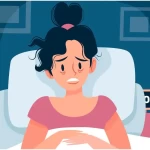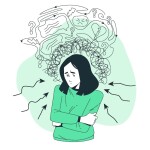Mother's Day. It conjures images of breakfast in bed, handmade cards, and maybe a store-bought bouquet. But isn't there more to it? This annual occasion is a beautiful chance to honor the incredible women who have mothered us.
They're not just the ones who gave birth to us (though a huge shout out to them!), but the women who nurtured our dreams, wiped away our tears and celebrated our victories with a fierceness that only a mother's love can possess. Mother figures come in all shapes and sizes. They could be our grandmothers, aunts, sisters, or even close friends who stepped in and offered unwavering support. Their love is a constant thread woven through our lives.
Mother's Day is the perfect time to acknowledge its profound impact. However, when we think of the word "Motherhood," a word synonymous with love, nurturing, and unwavering strength, society paints a picture of mothers as tireless superheroes, effortlessly juggling responsibilities and prioritizing their children's well-being above all else. Yet, beneath this idealized image lies a harsh reality: the significant mental health challenges faced by countless mothers.
A key factor fueling this silent struggle is the societal expectation of mothers as primary caregivers . They are expected to be emotional anchors, radiating warmth and composure while navigating the often chaotic world of child-rearing. This ingrained gender-based role creates immense pressure to suppress their own needs and emotions.
When a mother experiences anxiety or depression, feelings of guilt and inadequacy can escalate. "Shouldn't I be able to handle this?" becomes a relentless inner critic, perpetuating the stigma and discouraging them from seeking help. The silence surrounding mental health in mothers has far-reaching consequences.
The fear of judgment for not living up to the "perfect mother" ideal prevents them from accessing crucial support systems. This can lead to a cycle of isolation, worsening symptoms, and a diminished capacity to care for themselves and their families effectively.
The image of the harried mom juggling work, errands, and a never-ending stream of diaper changes is practically a cliché. But what if the constant worry goes beyond motherhood's "normal" anxieties? Generalized Anxiety Disorder (GAD) can become a silent thief of joy for many mothers, often brushed aside as simply part of the motherhood experience.
GAD manifests as a persistent and excessive worry about a multitude of things – finances, health, children's safety, the state of the laundry basket, you name it. For mothers with GAD, these worries become intrusive and overwhelming, consuming mental space and draining emotional energy. Imagine a young mother who constantly frets about her son's development.
Every missed milestone, every sniffle, sends her spiraling into a web of "what-ifs." She spends hours researching online, seeking reassurance, yet the worry never truly subsides. Simple tasks like grocery shopping become an ordeal; her mind races with anxieties about choosing the "perfect" organic ingredients. The insidious part?
Society often normalizes this anxious state in mothers. Exhausted friends offer sympathy, saying things like, "Being a mom is just a constant worry!" While some level of concern is natural, GAD goes beyond fleeting anxieties. It's a constant undercurrent of fear that disrupts daily life and steals moments of joy.
The normalization of GAD can lead to a sense of shame and isolation for mothers struggling with it. They might feel like failures for not being able to "handle" motherhood like others seem to. Additionally, instead of acknowledging and addressing these issues, there is a tendency to brush them off as just a part of being a mother.
Furthermore, mental health conditions such as obsessive-compulsive disorder (OCD) are often overlooked or dismissed when it comes to mothers. Cleanliness OCD, for example, is sometimes seen as a positive trait in mothers, as it is associated with keeping a tidy and organized home. However, this overlooks the underlying anxiety and distress that accompany OCD and can lead to feelings of shame and isolation for mothers struggling with this condition.
The narrative surrounding motherhood often portrays it as a selfless act of constant giving, with the mother's needs relegated to the background. This creates a scenario where a mother's mental health struggles are frequently overshadowed by the perceived importance of her child's well-being.
This prioritization, while understandable, can have detrimental consequences. When a mother's anxieties and compulsions become all-consuming, her ability to effectively care for and nurture her child diminishes. Furthermore, the societal expectation of mothers to silently endure stress and worry creates a climate of stigma surrounding mental health concerns in this population.
This stigma discourages them from seeking professional help and accessing vital support systems. Ultimately, a healthy and resilient mother is the cornerstone of a healthy and well-adjusted child. By recognizing the legitimacy of mothers' mental health needs and fostering open conversations, we can create a support network that empowers mothers to prioritize their well-being, ultimately leading to a more fulfilling and positive experience for both mother and child.
Motherhood is a complex and often emotionally demanding journey. Mothers are not superheroes. They are human beings susceptible to the same mental health challenges as anyone else. By dismantling the pressure to conform to an unrealistic stereotype, we can create a space for open dialogue about mental health in motherhood.
This includes encouraging mothers to prioritize their own well-being, knowing that a healthy mom is the foundation of a healthy family. Let's celebrate the strength found in vulnerability, the courage it takes to seek help, and the profound impact it has on both mother and child. By fostering open conversations about mental health and normalizing the act of seeking professional support, we empower mothers to prioritize their well-being.
This isn't selfishness; it's the foundation for a healthier, happier family unit. When a mother is empowered to manage her mental health, she becomes a beacon of resilience for her children, creating a supportive environment where all mothers can thrive. In this way, we not only celebrate the unwavering strength of mothers but also pave the way for a future where seeking help is seen not as a weakness but as the ultimate act of love for oneself and one's family.
Let's celebrate the strength of mothers, not just in their selflessness but also in their vulnerability and their courage to seek help. In doing so, we empower them to navigate the challenges of motherhood with greater resilience and create a more supportive environment for all mothers to thrive.
To create a supportive and healthy environment for your moms, help her download and navigate the Solh App. Solh believes true well-being goes beyond a checklist; it's about weaving a supportive tapestry that empowers you on your unique journey. Solh transcends mere information. We recognize the power of self-reflection. Our journaling tools guide you in exploring your inner world, helping you understand your thoughts and emotions. But sometimes, introspection needs a companion.
That's where our vibrant community steps in. Solh fosters safe spaces, like anonymous and open support groups, where you can connect with others who understand. Here, you can share your experiences, offer encouragement, and find solace in the power of shared struggles. Feeling alone is a common pitfall on the path to mental wellness.
Solh Buddy steps in to bridge this gap. Imagine a personalized virtual companion tailored to your specific needs. Solh Buddy provides ongoing support and motivation, cheering you on every step of the way. We understand there's no one-size-fits-all approach. That's why Solh offers a diverse toolkit. Do you find solace in journaling your thoughts and feelings? Perhaps connecting with others in a support group resonates with you. Or maybe personalized guidance from Solh Buddy is your perfect fit.
Whatever your preference, Solh has something for you. Take charge of your mental well-being. Explore the rich tapestry of resources Solh offers and embark on a journey towards a happier, healthier you. Solh isn't just a collection of tools; it's your supportive companion, walking alongside you on your path to mental wellness.








